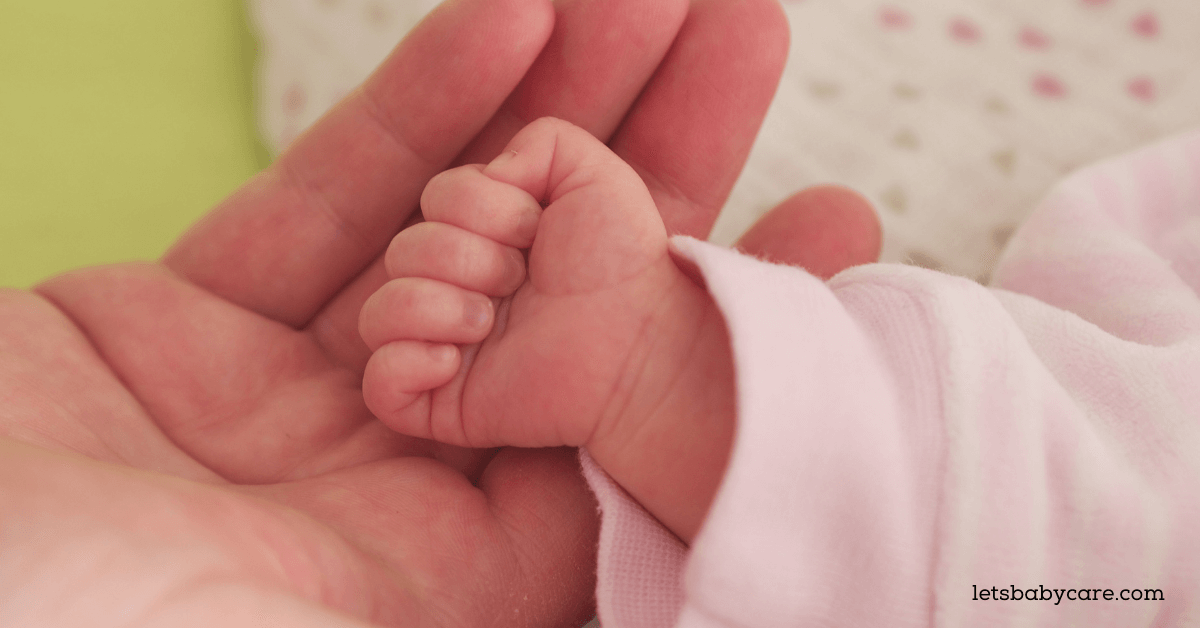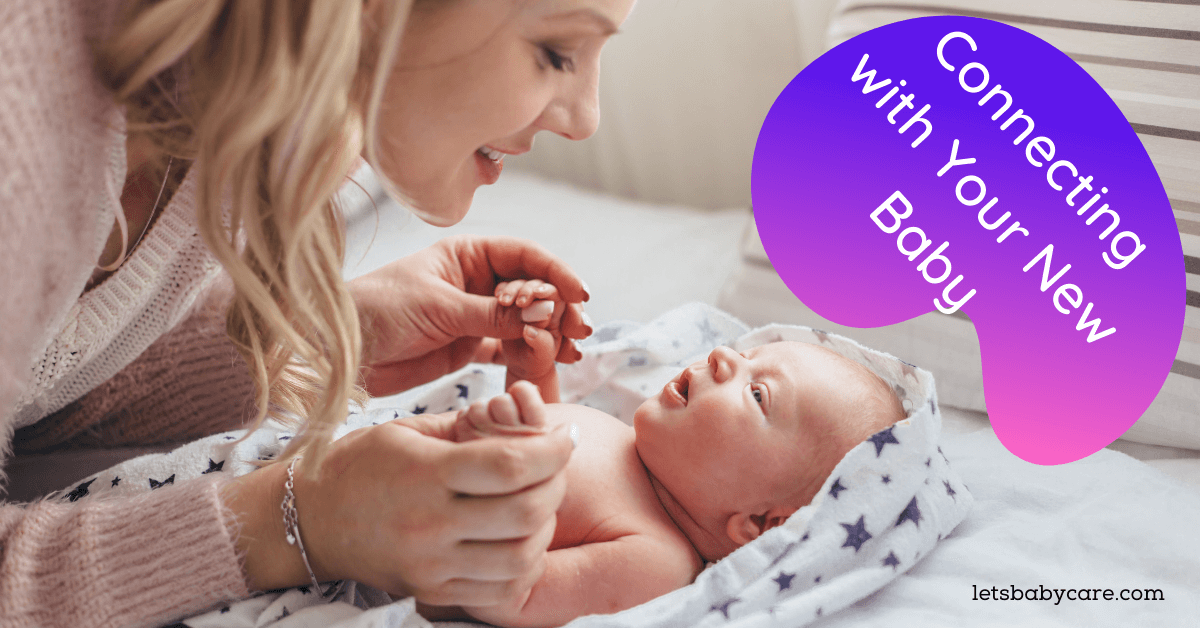Guide To Connecting With Your New Baby
Do everything you can to prepare for a gentle, non-invasive birth. When you orchestrate your delivery, you gain control over the birth experience and what happens immediately after birth.
Write a birth plan, read about birth, take birthing classes, discuss pain management options with your doctor or midwife. You might also consider hiring a doula to help you with your delivery and postpartum care.
Reading is the Way

Read, read, read…if you are genuinely interested in a nurturing, attachment style of parenting, avoid mainstream parenting books like the What to Expect series. They do not support a responsive parenting style. If you can only buy one book on parenting, I would highly recommend The Baby Book by William and Martha Sears.
Immediately the Following Birth
The first couple of hours after birth are essential for the new parent(s) to spend with their new baby. A newborn will typically spend its first hour or so in a state of calm alertness, and it is a very precious time. The baby will seek eye contact with you and gaze at you intensely. Your loving touch is soothing to her and helps her make the transition from the womb. She will listen to your voice and may even seem to recognize it.

Many new babies will breastfeed in this first hour, and it is the perfect opportunity to introduce her to the breast and see if she is interested. Even if all she does is get introduced to your breasts and milk scent, it can help begin your breastfeeding relationship.
If you end up having a C-section and are unavailable to your baby for several hours, make sure someone (her father, grandmother, etc.) is with your baby. Avoid having the baby lying alone in the nursery, for indeed, your baby is programmed to initiate bonding immediately following birth. As part of your birth plan, request that all (non-lifesaving) procedures be delayed until after you and your baby have experienced this time together. This includes bathing, weighing, and measuring. The Vitamin K shot, especially the antibiotic ointment or silver nitrate drops that will be placed in your baby’s eyes in nearly every case. These drops will temporarily leave your baby’s vision blurred and won’t allow her to see you while getting acquainted. Your hospital should enable you and the new father to participate in the bathing, weighing, etc.
Personal Note: After Annika and I cuddled and breastfed for the first time, my husband Scott accompanied her to the nursery and helped with all non-emergency procedures. He bathed her, diapered her, and was with her through all of the hospital’s required procedures. During this time, I was scarfing down as much breakfast as the nurse could supply me with and moving from the birthing room to our recovery room where I was met by a proud, newly accomplished daddy and my baby.”
Connect With Your Baby while Separated from You
If your baby has serious health problems and must be separated from you for some time, do not worry that you will never “bond”. There are many opportunities to connect with your baby. While the first moments are essential, and you should do everything you can to spend them with your baby, all is not lost if this is impossible. If you have lost time with your baby due to health reasons, make sure that you take lots of time alone with your baby to establish a connection when you are reunited. Pump your breast milk during your separation so that you can breastfeed, and plan to invest extra time teaching your baby to nurse if she has been trained to suck from bottles.
Personal Note: After spending one day and night together in our hospital room, Annika was diagnosed with a blood incompatibility. She had to have a complete blood exchange transfusion and spent the rest of her first week in the NICU under phototherapy lights to treat abnormal jaundice. Looking back, I am so happy we had that first 24 hour period together. It was so hard having her “snatched” out of my arms, but it gave me something to hold onto while we were separated. I had established that contact with her and was already so overwhelmed with love.
Rooming-In
Rooming-in means more time to hold your baby, more time to look at your baby, more time to talk to your baby, more time to get to know your baby…..more time to form the initial connection with her.
If you give birth at a hospital, unless you or your baby are seriously ill, have your baby stay in your room with you. Many hospitals don’t even use nurseries regularly anymore. This arrangement gives you the fullest opportunity to establish breastfeeding successfully and start learning to read your baby’s cues. This is your baby and if at all possible, you and your partner need to be connecting with and nurturing your baby, not the hospital nurses! If you are weak and exhausted, it may be tempting to let the nurses take over your baby’s care for a while. Here are a few reasons why this might not be such a good idea, and a few suggestions to make it easier for you to keep the baby with you.
If the baby is kept away from you in the nursery, you run the risk of a nurse (who might be letting you rest) giving the baby a bottle of formula or a pacifier. This undermines the need for your baby to nurse as much as possible to bring in your milk, establish your supply, and avoid engorgement. You also run the risk of nipple confusion, which occurs in some babies.
Rooming Out
Rooming out means a delay in learning your baby’s feeding cues. If you have the baby in with you, by the time you go home, you may already be in tune with your baby’s indications of hunger before he even starts to cry! If your baby is in the nursery, it is likely that by the time she is brought to you to feed, she will be passed the early feeding cues (rooting, opening the mouth, sucking on tongue or lips and perhaps even past her initial attention-getting cries and well on the way to hysterical crying. This can make it very difficult to get her nursing, and these piercing cries can be very hard to hear.
Babies who room-in are generally more content, cry less, and seem to develop more regular sleep-wake cycles earlier.
If your baby rooms in with you, you tend to get more rest. Newborn babies sleep so much that you will have plenty of time to nap. Also, you won’t be feeling anxious about the separation or wondering how your baby is. She will be right near you at all times.
Suggestions to make rooming-in easier if you are tired:

Sleep when the baby sleeps.
If you need some uninterrupted quiet time, have a dad or a grandma hold the baby or stay quietly in the room to be there if the baby wakes up and needs maintenance. There might be an area in the nursery where the new father and his baby could spend some quiet time together rocking while you sleep.
If you really need a break and have no family around to help you, have a nurse take the baby after eating and has fallen asleep. This will give you a chance for a solitary nap. Make sure you emphasize that you want the baby brought back to you upon awakening to breastfeed.
